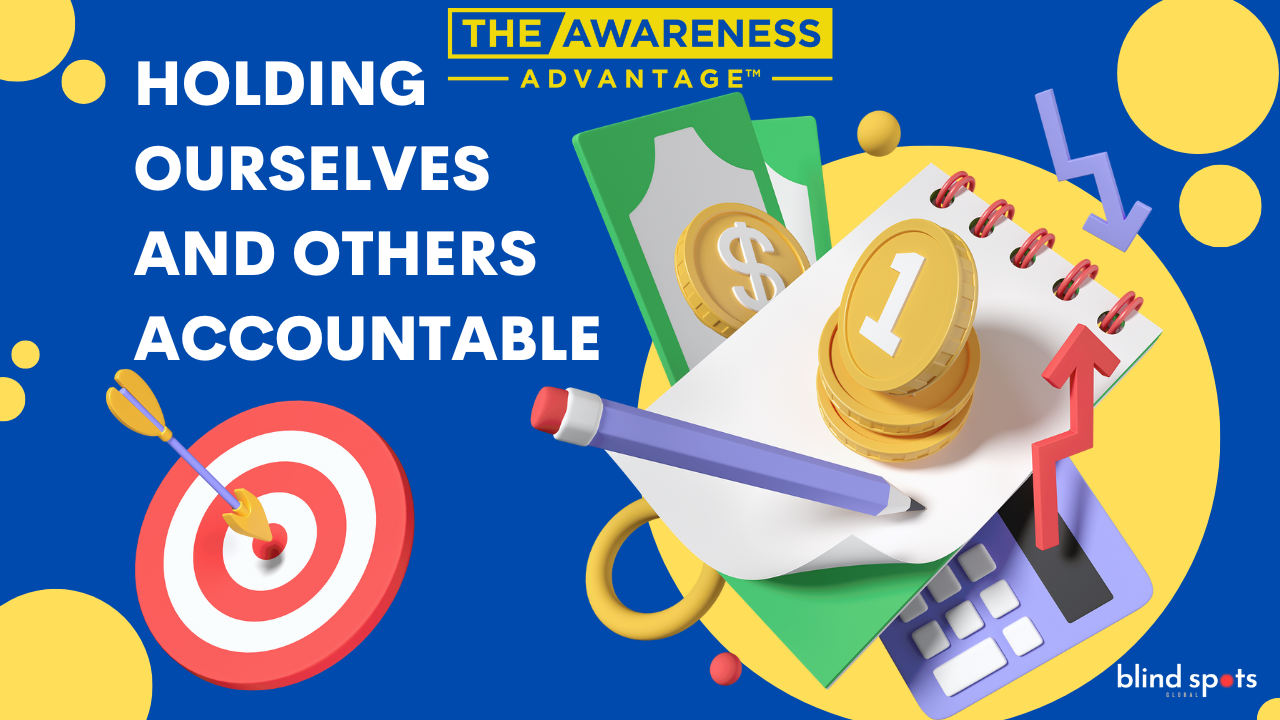
How Do We Hold Ourselves and Others Accountable
Awareness Advantage Podcast
How Do We Hold Ourselves and Others Accountable
Kevin McCarthy, and Likky Lavji
Self-accountability is one thing-- Holding others accountable is something else! If we are holding ourselves accountable it means that we are taking responsibility for our actions and behaviors without blaming others. Beyond that, we are keeping promises, fulfilling obligations, tasks, and goals without excuses. It also means that if there is a challenge--we find a solution, and not try to blame someone else.
So what can we do to hold the people around us accountable?
Here are 5 tactics to use:
- Set clear expectations. When we are very clear about what we expect and the outcome we are looking for - AND how success is measured -- AND what actions should be taken to get there, there should not be room for misunderstanding or confusion.
Now this does not mean that you need to micro-manage every interaction. In fact, if your team is experienced and skilled, they will have strategies and ideas as well. When you have a candid and a genuine two-way conversation, and then have the other person summarize it in their own words, including the to the outcome they want, how they will achieve it, and how they’ll measure success, you will be able to confirm you are on the same page--and this is the first step. - Time and Tools. Does the person have the time and tools to meet your expectations? Do they need additional education, resources or skills? If the person does not have what’s necessary, are they able to obtain it? If so - great... is there a plan? If not, you’ll need to delegate to someone else. It is not fair to set other people up for failure.
- Measure it. When setting expectations, it is important to agree on regular check-ins to measure milestones - in which you have clear, measurable, and objective targets. If these micro-milestones are not met, you will never make the final goal. When things fall short, address this immediately and find a solution, change up the schedule, pull in resources or identify a fix - and get back on track.
- Constructive criticism. Honest, open, and continual feedback is key to a successful relationship, team, or project. People perform better when they know where they stand and have clear expectations, and a measurement.
- Consequences. Most importantly, there should be consequences if expectations are not met -- AND consequences if they are! These should be clear and set ahead of time... AND followed through upon. Everyone involved should know the consequences (good and bad) and to have the buy in and ability to accept them.
Raising your self-awareness and emotional intelligence will make you a better leader. High self-awareness equips you to identify and conquer the blind spots that lead to poor decisions, strained relationships and high levels of stress. Awareness is the leader’s superpower that drives engagement, inspires retention and shifts culture. Awareness gives you the advantage you need to influence and inspire the people you lead.
Stay connected with news and updates!
Join our mailing list to receive the latest news and updates from our team.
Don't worry, your information will not be shared.
We hate SPAM. We will never sell your information, for any reason.

